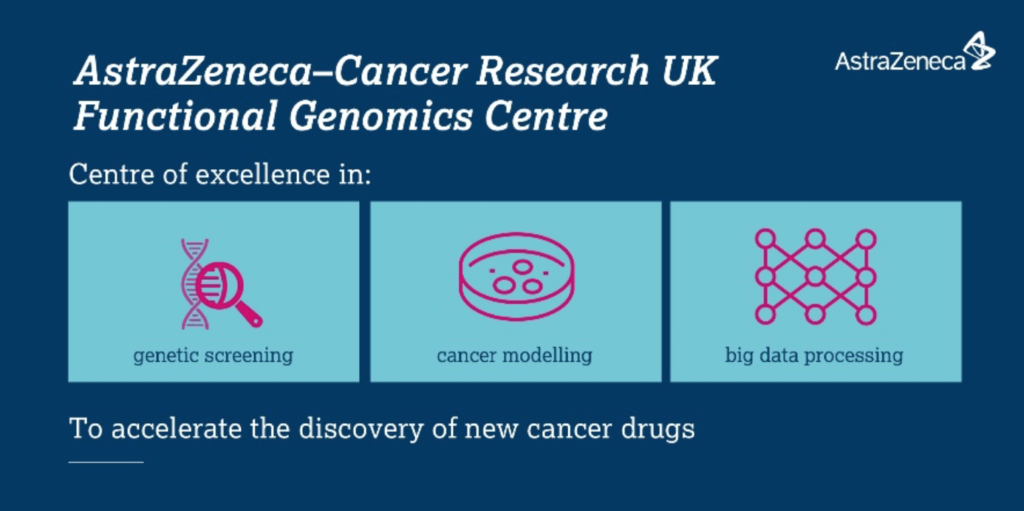We are excited to be celebrating the launch of the AstraZeneca-Cancer Research UK Functional Genomics Centre today. Based in the Milner Therapeutics Institute, this collaborative team will be utilising CRISPR technologies to better understand cancer biology, creating biological models that aim to more accurately reflect human disease. Alongside the support and expertise it will provide for CRUK-funded researchers, the centre will deepen our understanding of the drivers behind cancer, reveal how resistance to treatments might arise and be avoided, and identify novel therapeutic approaches to traditionally hard-to-treat cancers.
Read more about the AstraZeneca-Cancer Research UK Functional Genomics Centre

